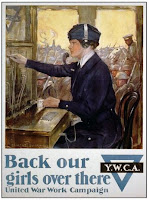August 4, 2021
First of all, a belated “Happy Birthday” to Brian Elliott, Quarantine Blog’s chief Canadian correspondent and good friend.
👉 Feeling a little nostalgic today, so let’s put a few coins in the juke box and play some 60s tunes (“Satisfaction” by the Rolling Stones is a 60s song, but the video below is from a tour they did in Japan in 1990 – I wanted a clip of Mick Jagger strutting all over the stage, and he does in this one for over 8 minutes).
Up first, “Stop in the Name of Love” by the Supremes (this clip is from the before times when Diana Ross wasn’t yet featured as the headliner). Recorded for Motown, this song held the number one spot for 2 weeks and Billboard named the song #38 on their list of 100 Greatest Girl Group Songs of All Time.
Here’s The Monkees and “I'm a Believer.” Mickey Dolenz, vocalist and drummer, described The Monkees as initially being “a TV show about an imaginary band ... that wanted to be the Beatles that was never successful.” Ironically, the success of the show led to the actor-musicians becoming one of the most successful bands of the 1960s. The Monkees have sold more than 75 million records worldwide.
As promised, the Rolling Stones doing “(I Can't Get No) Satisfaction” (and James Brown was called the hardest working man in show business – after watching this, I think they may have given that moniker to the wrong singer). “Satisfaction” is one of the world’s most popular songs, and is second on Rolling Stone Magazine’s (no relationship to the singing group) 500 Greatest Songs of All Time list. It was inducted into the Grammy Hall of Fame in 1998, and it is the 10th best ranked song on critics’ all-time lists according to Acclaimed Music.
And before I run out of nickels, a song by a group that made a lot of money by repeating the same lyrics over and over, but with enjoyable results. Here is Herman’s Hermits and “Mrs. Brown, You've Got a Lovely Daughter.” The song debuted at # 12 on Billboard’s Top 100 and went to number 1, the group’s first.
👉 In the earliest days of the telephone, people couldn’t dial one another directly. You needed an intermediary – a telephone operator – to manually relay your call on a central switchboard connected to subscribers’ wires. The idea for an operator originated in April 1877, when George W. Coy attended a lecture by Alexander Graham Bell. In it, the famous inventor demonstrated how he could converse with two colleagues – one 27 miles away, the other 38 miles – using a device he’d patented just the year before: the telephone. Coy, a Civil War veteran who worked in the telegraph business, soon made a deal with Bell to set up the first telephone exchange in the United States, a central switchboard that allowed anyone with a telephone to call or be called by anyone else who had one. Coy’s telephone exchange, in New Haven, Connecticut, opened in 1878, with 21 clients, including the local police, post office and a drug store.
The first operators were boys – boys had worked in telegraph offices, so it was a natural progression. It turned out there was a problem with male switchboard operators: The boys, often barely in their teens, when distracted would leave a call unanswered. Hoping to find operators who’d be more attentive to their duties, local phone companies began to recruit girls and young women. As the number of telephones in the U.S. multiplied, so did the demand for operators. In 1910, there were 88,000 female telephone operators in the United States. By 1920, there were 178,000, and by 1930, 235,000.
During the First World War the Signal Corps Female Telephone Operators Unit, informally known as the “Hello Girls,” served overseas. Their mission was to facilitate communications between Allied troops on the Western front, serving not only as operators but often as translators. On May 22, 1919, Grace Banker was awarded the U.S. Army’s Distinguished Service Medal. In his letter of recommendation for Banker to receive this award, Colonel Parker Hitt of the U.S. Army Signal Corps wrote, “Her untiring devotion to duty under trying conditions of service at these Headquarters has gone far to assure the success of the telephone service in the operations of the First Army.”
As with so many industries, technology appeared that changed the way we made telephone calls. New innovations allowed telephone users simply to dial another phone without the aid of an operator. In 2021, the Bureau of Labor Statistics reported a total of just 5,000 workers it classifies as “telephone operators.”
👉 Speaking of telephones:
👉 World’s Best Toys:
👉 Today’s close, “When God Says No,” is from In the Grip of Grace, by Max Lucado.
All you want is an open door or an extra day or an answered prayer, for which you will be thankful.
And so you pray and wait.
No answer.
You pray and wait.
No answer.
You pray and wait.
May I ask a very important question? What if God says no?
What if the request is delayed or even denied? When God says no to you, how will you respond? If God says, “I’ve given you my grace, and that is enough,” will you be content?
Content. That’s the word. A state of heart in which you would be at peace if God gave you nothing more than he already has. Test yourself with this question: What if God’s only gift to you were his grace to save you. Would you be content?
What if his answer is, “My grace is enough.” Would you be content?
You see, from heaven’s perspective, grace is enough.
-30-










No comments:
Post a Comment